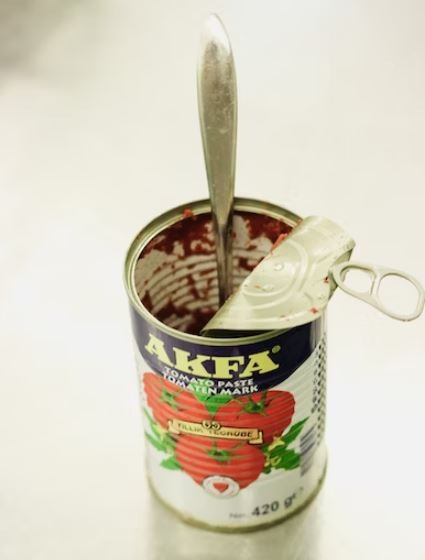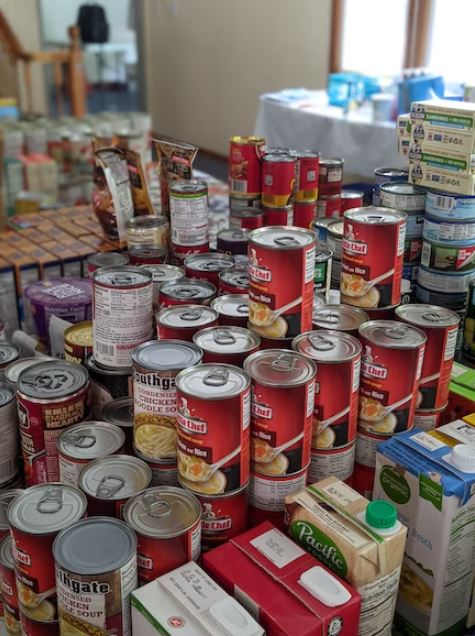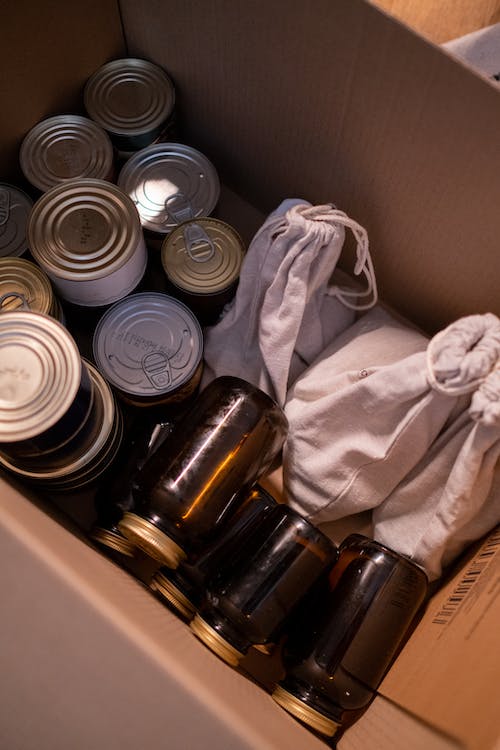Canned Food Commercial Preparation
Canned foods are a popular and convenient option for many people, as they are easy to stock, and prepare, containing a longer shelf life. Many developments optimizing processed food to be packed well for a sustainable time became a primary concern. However, consumers should know some important considerations regarding canned food safety.
Canned foods are washed, prepared, and packed in metal containers and canning liquids (water, brine, fruit juices, etc.). The process involves food heating treated to produce a commercially sterile, shelf-stable product with an airtight (vacuum) seal. Heat treatment kills organisms that can spoil food or cause food poisoning. The contents remain commercially clean until the container is destroyed and the vacuum seal is broken.
Hermetic sealing of food in containers combined with heat and chemical treatment is a highly effective method of food preservation. When canning food, manufacturers seal it in a metal can or jar and heat it above 100°C (212°F) long enough to kill the bacteria and other microorganisms in the food. All organisms in the food are dead and so cannot feast on the sugars or other nutrients, multiply, and cause spoilage. Foods such as fruits, vegetables, meat, fish, or combinations of these foods (such as meat and vegetable soups, sauces, and fruit salads) can be safely stored in airtight containers.
Storing Canned Foods at Home

Storing canned food properly requires discipline and a rigid process to maintain its safety, quality, and longevity. Remember, opened canned food should be treated like fresh food and consumed immediately or stored safely. If not used or consumed, the food content of the opened container should be eaten or transferred into a clean container (plastic or glass), covered, and stored correctly in a fridge.
If you have a pantry of canned foods, there are some things you have to follow religiously. Check the product label for storage instructions. If storage conditions are required for health and safety reasons, those conditions must be stated on the label. Generally, canned foods are produced to be stored at room temperature. Store in a cool, dry place unless otherwise directed on the label. Handle canned food carefully to avoid dents or other damage that can compromise the seal of the can. Rotate foods in your pantry, using older stock first to be consumed.
Another consideration is that canned foods should be stored in a dry, room-temperature place away from direct exposure to sunlight and heat sources. Excessive heat and sunlight can cause the food to spoil or lose its nutritional value and can also cause the can to expand or burst.
For proper stocking procedure, it is best always to check the canned food container as this is necessary to ensure the food’s safety. Metal lids on cans and jars can rust. If the rust is deep enough, it will create tiny holes in the can or lid, allowing rot to penetrate. Transport accidents due to dents and crushing can become a problem.
Foods, especially highly acidic foods such as canned tomatoes and fruit juices, react chemically with metal containers. As a result, the taste and texture will change over the years. It ultimately reduces the nutritional value of food. Foods stored before the regular label date will be safe to eat if the containers do not show signs of spoilage or damage. However, if the seal is broken, the foods may deteriorate in color, flavor, and nutritional value.
Canned Food Shelf Life
The shelf life of canned foods can depend on different factors, such as the type of food, storage conditions, and the brand. Properly stored canned foods can last long, often years, beyond the printed expiration date.
United States Department of Agriculture reported that high-acid canned goods, such as tomatoes and fruits, can last from 12 to 18 months when stored in a cool, dry place. Low-acid canned goods, such as meats and vegetables, can last 2 to 5 years when stored properly.
Although canned foods are safe to consume past their sell-by date, it is essential to note that their quality and nutritional value may decline over time. If so, checking the appearance, smell, and texture before use is recommended. Additionally, if the can is damaged, bulging, or leaking, it should be discarded immediately. Cans are safe indefinitely if they are in good condition (no dents, bulges, or rust) and stored in a cool, clean, and dry place. Although rare, the toxin produced by Clostridium botulinum is the greatest danger in canned foods.
It is also a good trick to remember that bacteria that cause food poisoning do not grow in the freezer, so you can eat it safely even if you freeze it. Food in the freezer for several months may be dry or tasteless but is safe to eat. So if you find a package of meat stored in the freezer for over a few months, don’t throw it away. Making it an additional topping for your menu is still possible and safe. Spices and other ingredients can compensate for the loss of flavor.
Conclusion
It is always important to pay attention to the canned foods you buy, stock, and prepare for your loved ones. While many canned goods can last for a long time, they will eventually expire and can become unsafe to eat and, worse, may even pose health risks such as food poison. One good way to ensure you are buying the safe ones is always to check the label contents, follow the storing procedures, and buy products from well-known brands or retailers with a track record of producing and selling safe food products. After all, we just wanted to make our loved ones enjoy their dining experience with happy and healthy stomachs.



